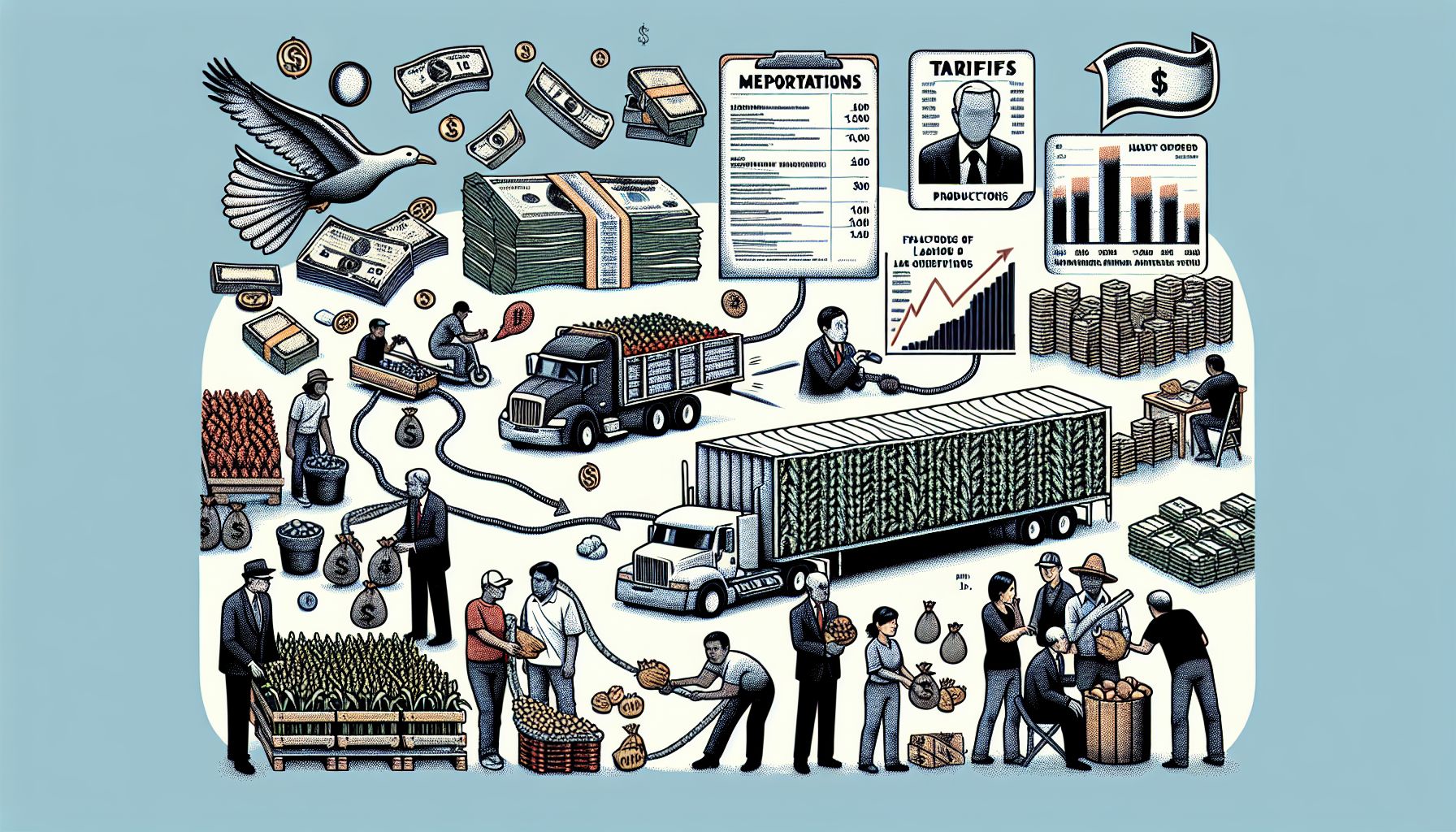Trump's Economic Plans: A Recipe for Soaring Grocery Prices

New York, Wednesday, 13 November 2024.
Nobel laureate Paul Krugman warns that Donald Trump’s proposed mass deportations and tariffs could significantly drive up inflation, particularly affecting food prices. With undocumented workers comprising a large portion of the agricultural workforce, their removal could lead to severe labor shortages and increased production costs.
Impact on the Agricultural Sector
The potential for significant inflation under Trump’s proposed policies is a critical concern, particularly in the agricultural sector. Undocumented workers make up a substantial portion of the workforce in this industry, with estimates suggesting that about three-quarters of agricultural laborers are immigrants, and half of these are undocumented[1]. The removal of such a large segment of the workforce could lead to severe labor shortages, forcing farmers to increase wages to attract new workers. This, in turn, would raise production costs and ultimately result in higher prices for consumers at grocery stores[2].
The Broader Economic Implications
Beyond agriculture, Trump’s economic strategy includes implementing tariffs and unfunded tax cuts, which Nobel Prize-winning economist Paul Krugman describes as ‘the most inflationary program probably that any American president has ever tried to implement’[3]. Tariffs, essentially taxes on imports, are likely to increase consumer prices, adding to the economic strain on households already grappling with rising costs of living. The Committee for a Responsible Federal Budget estimates that Trump’s tax plans could add nearly $8 trillion to the national debt over the next decade, further exacerbating inflationary pressures[4].
Consumer Reactions and Economic Realities
Krugman anticipates that many Trump voters, particularly those in less affluent demographics who spend a significant portion of their income on food, will experience ‘buyer’s remorse’ as they face the realities of increased grocery prices[5]. He underscores that the economic repercussions of Trump’s policies may come as a shock to voters who were misled by campaign rhetoric promising economic relief. The anticipated rise in inflation could lead to a heightened political and economic backlash as voters grapple with the effects on their daily lives[6].
Future Economic Landscape
Looking ahead, the implications of these policies suggest a challenging economic landscape. Krugman warns that the combination of mass deportations and tariffs could significantly hinder the economy’s productive capacity at a time of near-full employment[7]. This scenario paints a picture of a tumultuous economic environment with potential long-term effects on the U.S. economy’s growth and stability. As policymakers and voters alike navigate these changes, the need for informed economic strategies and transparent communication becomes increasingly urgent[8].